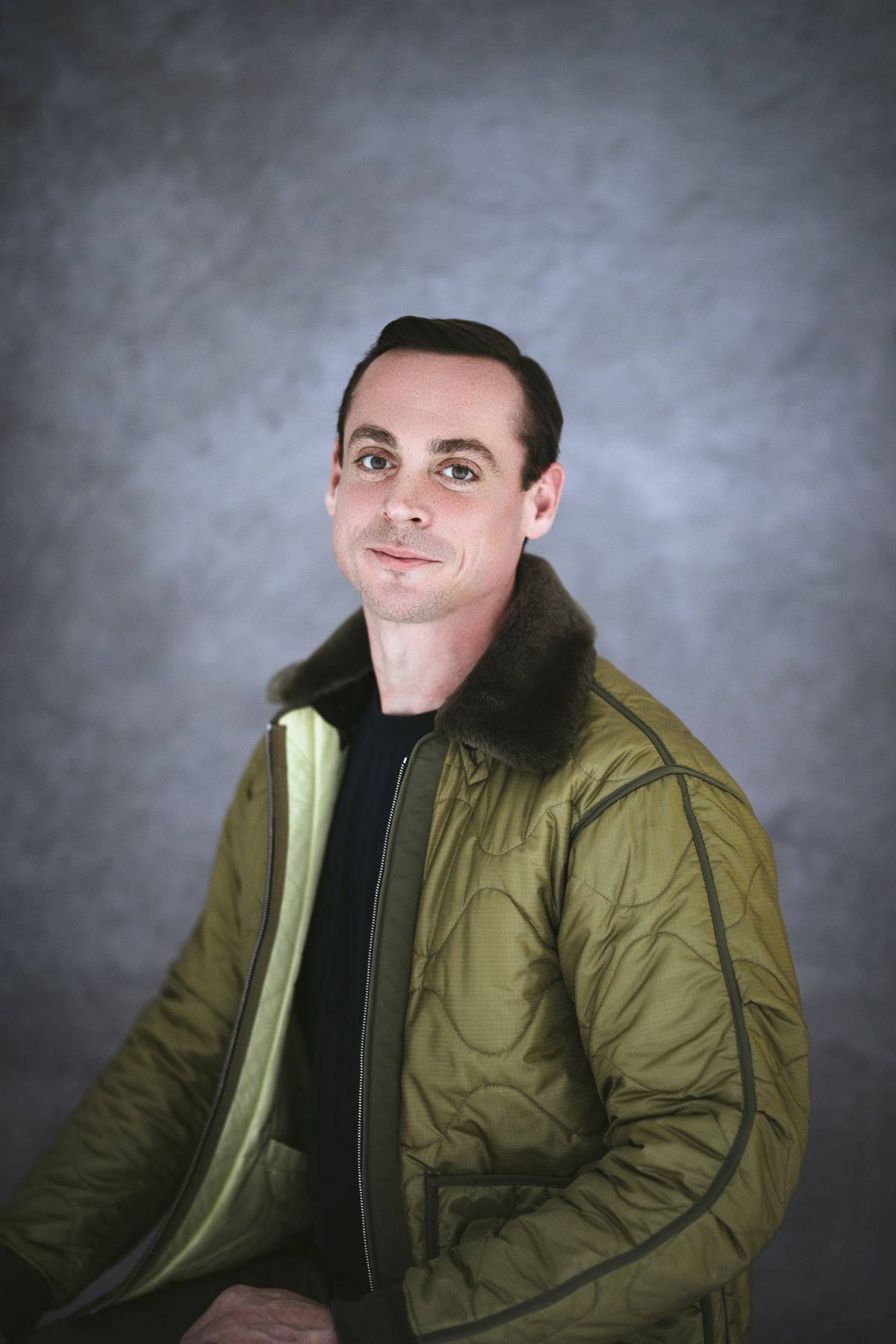Dan Cox
We are delighted to spotlight our latest Marfa Muse, Farmer and Chef Dan Cox.
How Dan Cox came to run a 120 acre organic farm near Saltash, South East Cornwall championing “regen ag” or regenerative farming (growing produce whilst also improving the environment) was possibly never on the agenda when he set out, aged 16 to become a chef.
His grandmother had taught him to cook out in Barry in Wales and his childhood growing up in North London had been one of a largely urban existence. He started at The Greenhouse in Mayfair and has focussed at working at the highest level in Michelin restaurants, winning the Roux scholarship at 26 in 2008, which allowed him to intern at any 3 star Michelin restaurant for 3 months.
Three years later, Simon Rogan recruited Cox to head up L’Enclume’s test kitchen. But two months after he arrived in the Lake District, the couple who ran the restaurant’s two acre farm decided they were going to retire. Until then Cox’s experience of growing anything had been largely microgreens (trays of mizuna and marigold shoots )in a little green house at home.
#marfamuse
“L’Enclume without a farm….well that was the point of it, it is about having access to incredible, seasonal produce and we thought to myself, ‘how hard can it be’” . Cue hollow laughs, buckets of curiosity and laying his hands on anything he could read on farming and soil health from Darwin’s lesser-selling The Formation of Vegetable Mould Through the Action of Worms), visiting suppliers and asking endless questions.
“Our thinking was: we’re a two Michelin star restaurant in the Lake District, who’s the equivalent to us in farming? And we couldn’t see anyone in the UK who was doing that.”
Cox continued to oversee and run it until Fera opened in 2014. The restaurant at Claridge's where he was executive chef gained a Michelin star after its first three months, but he had already got the bug and left after three years to pursue his own restaurant and farming dreams at Crocadon.
Now in partnership with Clare and Tim Williams, friends and regenerative farming experts, he has set out to create a farm in complete harmony with nature to produce the most delicious vegetables, grains, eggs, dairy and livestock you will ever taste. The Granary, a café and events space is slated to open this summer at Crocadon, followed by a restaurant next spring.
“I’ve always chased the best produce and wanted to work with the best people and getting to the root of this and understanding how this produce came to be is what ultimately pushed me to into farming.”
He is adamant that all food is only as good as the soil in which it is grown and he is passionate about the need to focus on it: “the more you can do to support the soil, the better the health of your plants and therefore your animals and health and vitality of both leads to more nutrition uptake by plant or animal which results in more nutrient dense and flavoursome food.”
At Crocadon the real focus of his work is harder to discern– around 20,000km of hyphae, or fungal filaments, which snake through every square metre of healthy soil. “There’s a whole universe down there of different organisms which help the soil thrive. If we care about the survival of the planet and what we eat, we need to make soil a priority.” He has planted super diverse of cover crops, from fertility building legumes to deep rooting chicory and the health of the soil has improved dramatically. There is no tilling on the land at Crocadon which minimises soil disturbance and in turn prevents erosion and allows the ecosystem to thrive. Pesticides or chemical fertilisers are also banned. I moot that a lot of life and society’s conundrums could be solved by observing how nature’s ecosystem works when left to do its own thing.
Cox in agreement: “Albert Einstein said that if you look deep into nature, you will understand everything better and that applies to everything- the way people consume, food supply, the fact that everything should be circular and that we shouldn’t be using anything from a finite source. Nature tells you all of that if you take the time to watch.”
What are you most proud of growing? “Something I love is artichoke, it’s the first thing I put into the ground, it’s an incredible plant. A hardy perennial which is packed full of nutrition and medicinal properties.”
He says that everyone talks about sustainability, but he wonders why you would sustain the current system of farming which is degrading the quality of soil further. “To sustain something is to keep it the same when what we really want to be doing is developing and evolving, make it as good as it can be. Sustainable isn’t a thing, it’s about regeneration.”
“Improve soil health, improve nutrition,” he says. “Improve nutrition, improve flavour.”
Photography by Alex Cameron
Interview by Carolyn Asome



